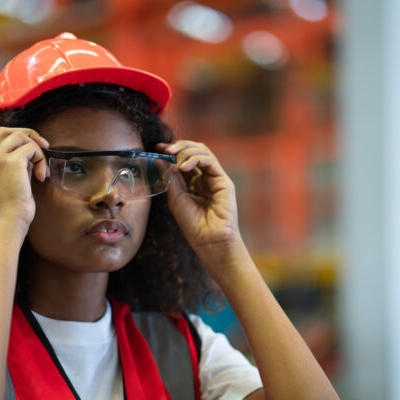Protect Your Hearing – Once it’s Gone, it’s Gone
Thursday, June 4, 2020 Amanda Coniglio
Everyone’s hearing naturally declines with age, sometimes it’s noticeable and sometimes it’s very subtle and only detected through an official hearing test, but there are occupational hazards that can speed that process up and worsen the degree of hearing loss. There are a few types of hearing loss that are considered reversible to include earwax buildup, ear infections, and sudden hearing loss (when you lose all or part of your hearing all at once – this can occur as a result of a short burst of noise such as a gunshot). Unfortunately, most work-related hearing loss is not on that list – once it’s gone, it is gone.
Work-related hearing loss and tinnitus is mostly caused by the continuous exposure to noise that gradually damages the hair cells inside the ear (which are responsible for detecting sound). Hearing loss can begin to occur at around 85dB and tends to happen so gradually that most people don’t notice it until it’s too late. In an effort to combat this, OSHA has established requirements for employers to establish hearing conservation programs for any worker exposed to 85dBA (8-hour time-weighted average) or higher. The hearing conservation program is required to establish procedures for monitoring, audiometric testing, hearing protectors, training, and record-keeping. The following includes, but is not limited to, some of the noisiest jobs: Construction Worker, Nightclub Worker, Musician, Factory Worker, Farm Worker, Nursery Worker or Teacher, and Airport Ground Crew.
So many times we brush hearing loss off, or simply associate it with age, and consider it singularly, but we need to also focus on the other impacts of hearing loss. Hearing loss has shown to have a negative impact on physical stress, psychological stress, and the ability to communicate both on the job and off the job. Individuals with hearing loss tend to experience depression, anxiety, frustration, social isolation, and fatigue – all of these can contribute to high blood pressure and heart disease.
The good news? Work-related hearing loss is PREVENTABLE! If you’re the employer, establish and enforce controls (administrative, engineering, PPE); if you are the employee, adhere to those established controls – wear your hearing protection devices. Your health depends on it.




.jpg)